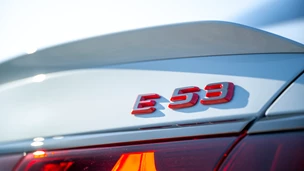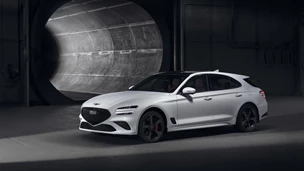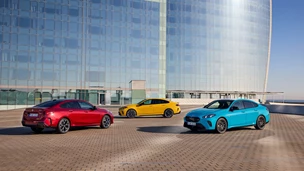Things have moved on in the General Motors range-extender electric car world since Sue Baker reported on the international launch of the Vauxhall Ampera in August and I tested the identical Chevrolet Volt in December. The big news between then and now has been the fact that the two cars - or really three, since the Ampera is badged as an Opel in non-UK markets - have jointly been named the European Car of the Year, showing the faith that at least the journalists who vote for that award have in the idea.In case you're still not clear on what that idea is, here's a brief rundown. There's a lot of pressure for manufacturers to design, build and sell electric cars, but present-day battery technology prevents them from going for more than a few dozen miles without having to be recharged. One way of solving this is to use an internal combustion engine (in this case a 1.4-litre petrol unit whose basic design is more than thirty years old) to charge the battery while the car is on the move.It may seem odd that anyone thinks the best way of getting away from cars without petrol engines is to build a car with a petrol engine, but the point is that you could conceivably run an Ampera for ever with no fuel in the tank as long as you never did more than about thirty miles without plugging it into the mains.But if you were going to do that you might as well buy a fully electric car. The Ampera's selling point is that you can use it this way on a daily basis and also, thanks to the engine and fuel tank, drive it to the other end of the country - or to a different country entirely - whenever it suits you, which a battery-only car could not do without several very long recharging stops.This ability does not come cheap. The least expensive Ampera, whose precise specification has yet to be confirmed, will go on sale this summer with a price of £34,995, though since it's eligible for the Government's Plug-In Car grant you will actually pay £29,995. The higher-specification Positiv and Electron, which arrive on the market on May 1, will cost the customer £32,250 and £33,995.Whichever one you pick, you do get quite a good car for the money. The Ampera looks good, the major controls are smooth, there's obviously not much noise (not even with the engine running - you only really hear it when it's working hard), the interior design is attractive, the handling is good and the ride is excellent (though jittery over some of the more poorly-surfaced roads of the Home Counties).Equipment levels are reasonably high, too. Both the Positiv and the Electron have front and rear parking sensors, leather seats (the front ones also being heated), cruise control, automatic wipers, climate control air-conditioning, DAB digital radio and Bluetooth connectivity. The extra £1745 you have to pay for the Electron buys you satellite navigation and a Bose audio system with six speakers and a sub-woofer.Less encouragingly, rear visibility is bad, being hampered by efforts to reduce aerodynamic drag, there's not much room in the back, and the load sill for the luggage compartment is awkwardly high.The official combined fuel economy and CO2 figures are nothing short of startling on paper, at 235.4mpg and 27g/km respectively. The latter figure makes the Ampera exempt - very, very exempt - from Vehicle Excise Duty and the London congestion charge, though it has no advantage in these respects over a 99g/km car.At least there's some future-proofing going on there. The exemption threshold won't stay at 100g/km forever, but it's going to be a very long time before it reaches a level that will concern the owner of a 27g/km car.As for the 235.4mpg statistic - well, it all depends. If you never use the engine your mpg figure will be infinite. It will be 235.4mpg if you drive the car in exactly the way it's driven in the EU fuel consumption test, which is unlikely. On the UK media event, Sue Baker and I found that our average mpg (once the battery had lost the charge it had been given overnight and was having to be topped up by the petrol engine) was in the low 40s.It's only fair to point out here that Vauxhall is making no attempt hide this, and stresses that you may, depending on your driving habits, achieve better results with an Insignia diesel. Other conventional diesels are also available.Vauxhall has also teamed up with British Gas to offer a home charging plan, which involves a home charging point being installed at your house (reducing the time taken for a full charge from six hours to four), plus three years' worth of parts and labour warranty and Home Electrical Care cover for the same period. It costs £799, and there are discounts of up to 75% in those parts of the country designated by the Government as "plugged-in places".The home charging plan therefore makes varying amounts of financial sense depending on where you live. Much the same could also be said of the Ampera itself.

Our Rating



